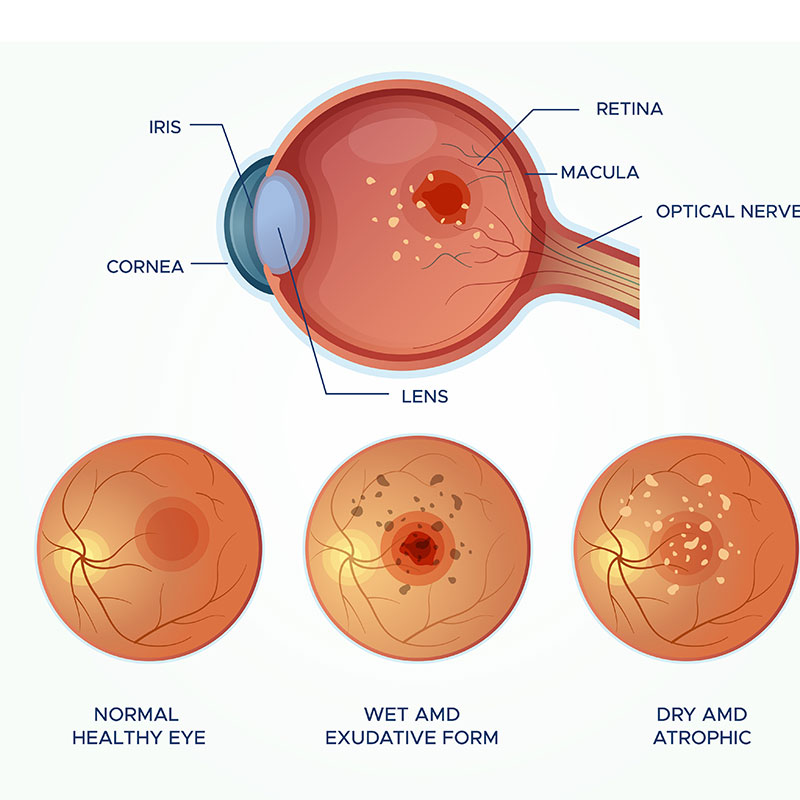Delaware, OH
Macular Degeneration

Delaware, OH
Macular Degeneration
Macular degeneration, also known as age-related macular degeneration (AMD), is an eye disease that affects the macula. The macula is the part of your retina that helps you see fine details, such as reading small print or recognizing faces. As we age, the cells in the macula can start to break down, causing blurred or lost vision in the center of your vision.
At Kristin L. Campbell OD, Dr. Kristin Campbell and Dr. Aimee Jeffers know how important it is to catch macular degeneration early. With regular eye exams, we can spot the early signs of AMD before you even notice any vision changes. We can then monitor its progression and refer you to a specialist for treatment when necessary, helping you maintain your vision and keep doing the things you love.

Types of macular degeneration
There are two main types of AMD:
- Dry AMD is the most common form of macular degeneration, accounting for about 85-90% of cases. It occurs when the cells in the macula gradually break down over time. In the early stages, you may not notice any symptoms.
- Wet AMD, though less common, is more serious and can cause faster and more severe vision loss. This form develops when abnormal blood vessels grow beneath the retina and leak fluid or blood, which can quickly damage the macula.
Schedule an appointment
It’s important to schedule regular comprehensive eye exams so our eye doctors can detect any early signs of AMD. Catching AMD in its early stages allows us to take proactive steps to preserve your vision. Call us or schedule online today to set up your macular degeneration exam in Delaware, Ohio.
